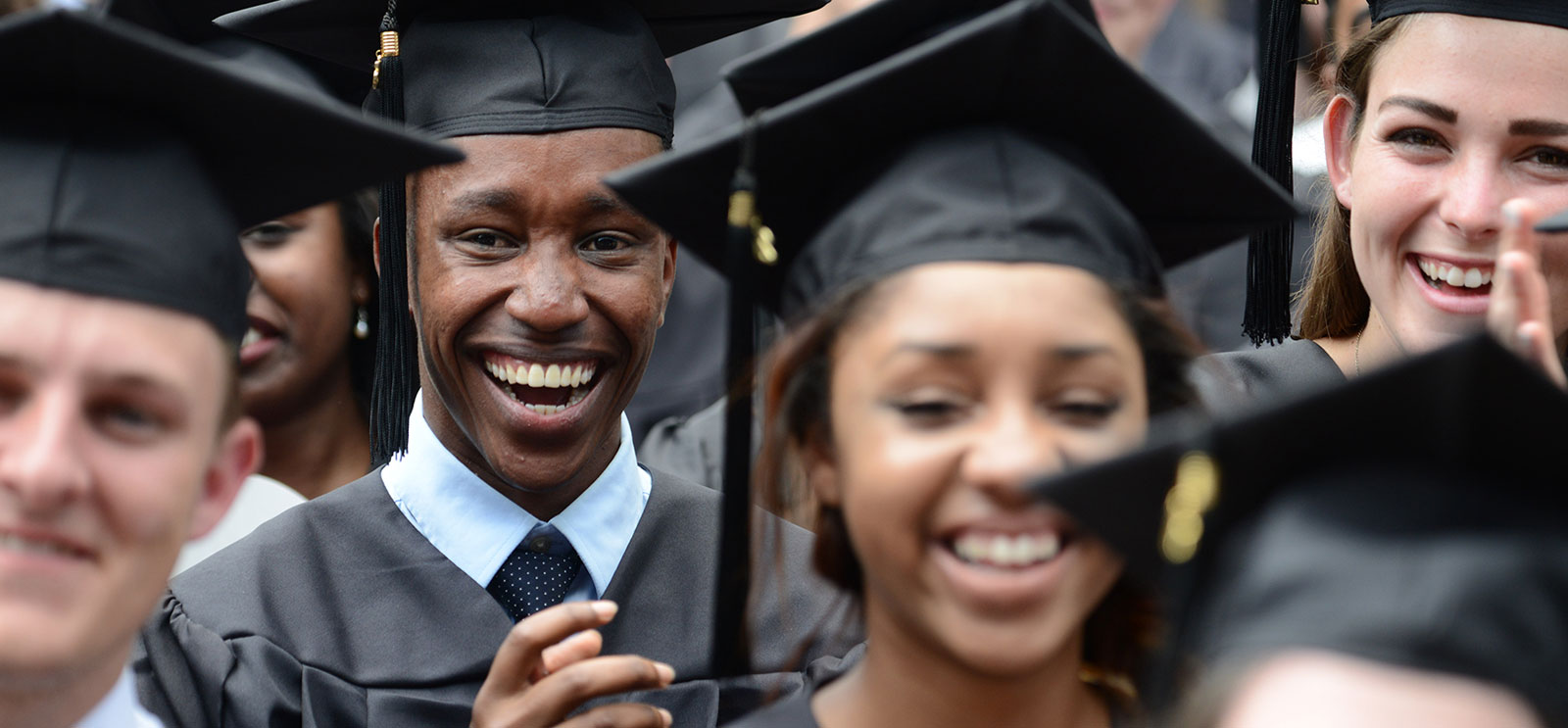
(Photography by Dan Dry)
At convocation, one journey ended and another began for some 3,300 graduates. How did it feel? Their faces told the story.
Later in the day there would be thunder and rain, but at 9 a.m. on June 13, there was a bright sky and a light breeze, and a giddy, fidgeting line of College almost-graduates—1,228 black caps and black gowns and beaming, slightly stunned faces—stretching out along two blocks of Ellis Avenue, from Levi Hall to Mansueto Library. Waiting.
Then the bagpipes skirled into song and the procession to the main quad began, marching toward the University of Chicago’s 523rd Convocation. Graduate degree recipients flowed in from adjacent quads, at Hull Gate and Harper Library, and the College students entered from the back. Stretching for the best views, waiting parents and loved ones waved and shouted and raised their cameras.
It took just over 30 minutes for the last students to file in and find their seats. As they walked past in a steady parade, it was hard not to think of the hours and years that had led each of them to this day: the time spent in class, in the library, in the laboratory, in the labor of their own minds. The midterms and finals weeks and weekend nights and all-nighters. How many times must these students have traced this same path, backpacks laden with books and notebooks and half-written papers? Now here they were again, anew.
“There is an essential human need to make things, and to communicate them to others,” composer Shulamit Ran told the graduates a few minutes later during her convocation address. “If we can engage in the pursuit of the beautiful, then we have wealth of the kind that sustains our spirits and uplifts our souls.” The Andrew MacLeish Distinguished Service Professor of Music and artistic director of UChicago’s Contempo music collective, Ran titled her speech “Why We Make Art.”
“We are all ennobled by the active pursuit of beauty,” she said. But neither the pursuit nor the beauty is easy. “Are you with us for the duration, or do you tune out, thinking that the function of art is to soothe and entertain you?” she asked. Making art—in whatever field or discipline—requires toil and rigor. The agony is often disproportionate to the flashes of ecstasy it yields. “The road is arduous, sometimes humbling,” Ran said, “which is why at the core of it all, there must be joy in the making itself.”
Afterward the morning turned to the business at hand: the conferring of degrees. One by one the deans of the divisions and professional schools stood up, called their students to their feet, and asked President Robert J. Zimmer to declare them new holders of master’s degrees and PhDs, JDs, and MDs. One by one Zimmer welcomed each group into “the ancient and honorable company of scholars.”
Then John W. Boyer, AM’69, PhD’75, dean of the College, stepped to the microphone, to an eruption of cheers. He smiled, waited, gently waved the students quiet. From the front of the stage, he said: “May I ask candidates for the degree of bachelor of arts or bachelor of science in the great Class of 2015 to stand and be recognized.” They did. And they cheered again, louder, longer. Some snapped selfies; some waved to Boyer. Zimmer, smiling too, declared them all College graduates.
In his closing remarks, before students and their families broke for lunch and the afternoon diploma ceremonies, the president described the kind of education the University instills. “We seek understanding that is complex, expandable, and fluid, rather than simple and rigid,” Zimmer said, “an understanding that reflects analysis rather than ideology.” The University and its culture, he added, “are renewed every day by the work of its faculty, students, and staff.” Congratulating all 3,272 newly minted graduates, he said: “I wish you all good fortune and happiness in the years ahead. Enjoy your coming adventures, wherever they may lead you.”
